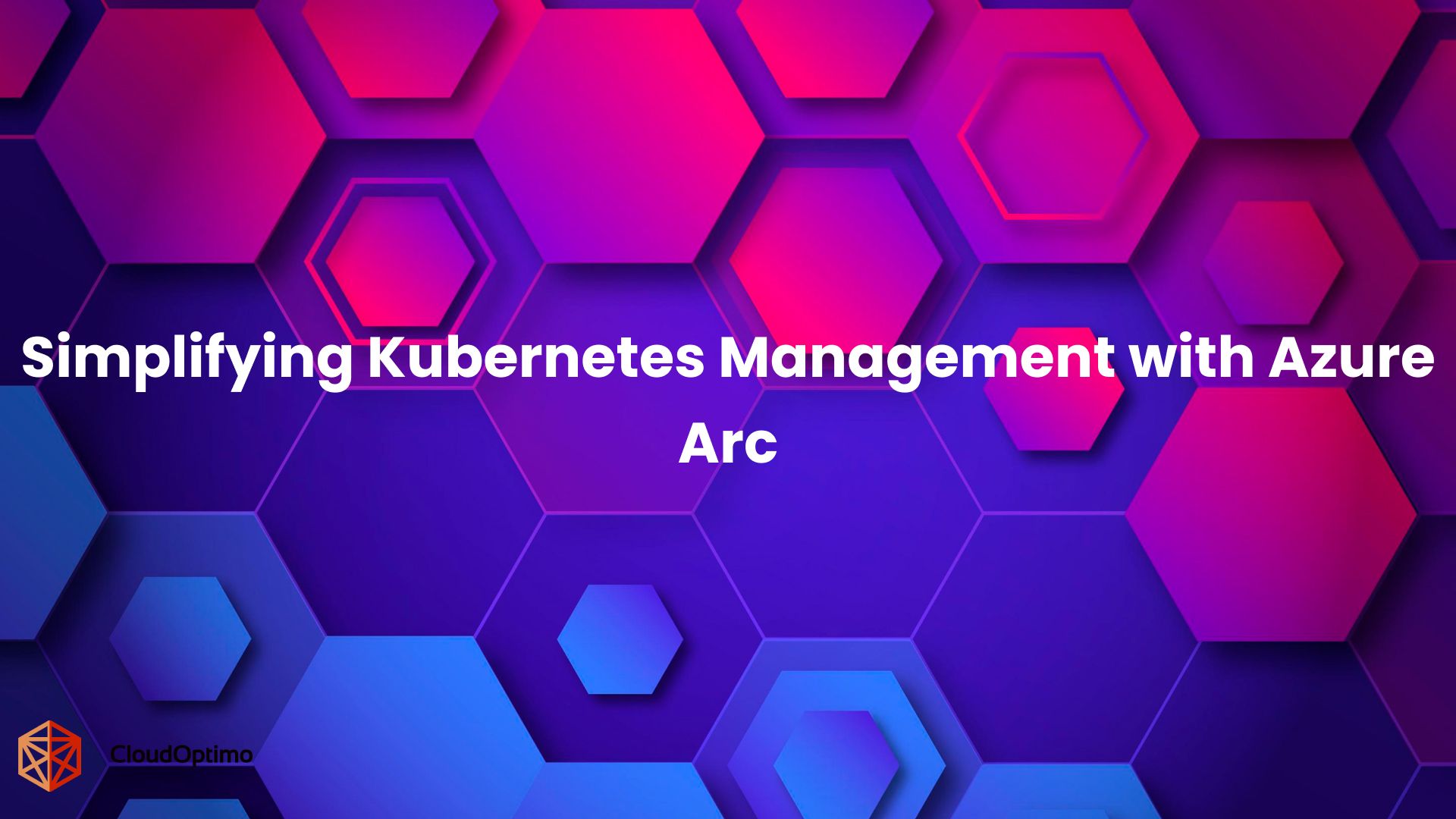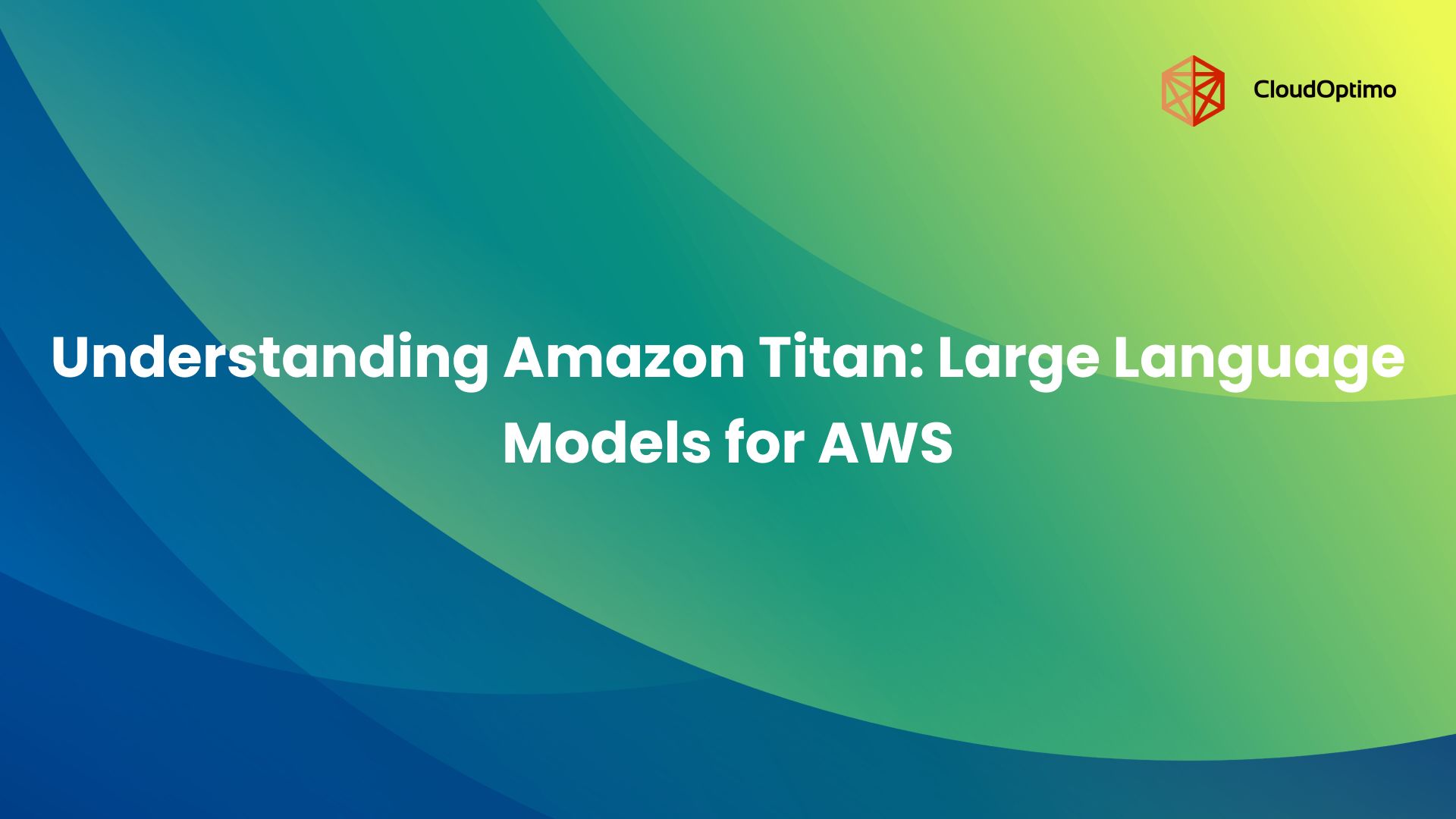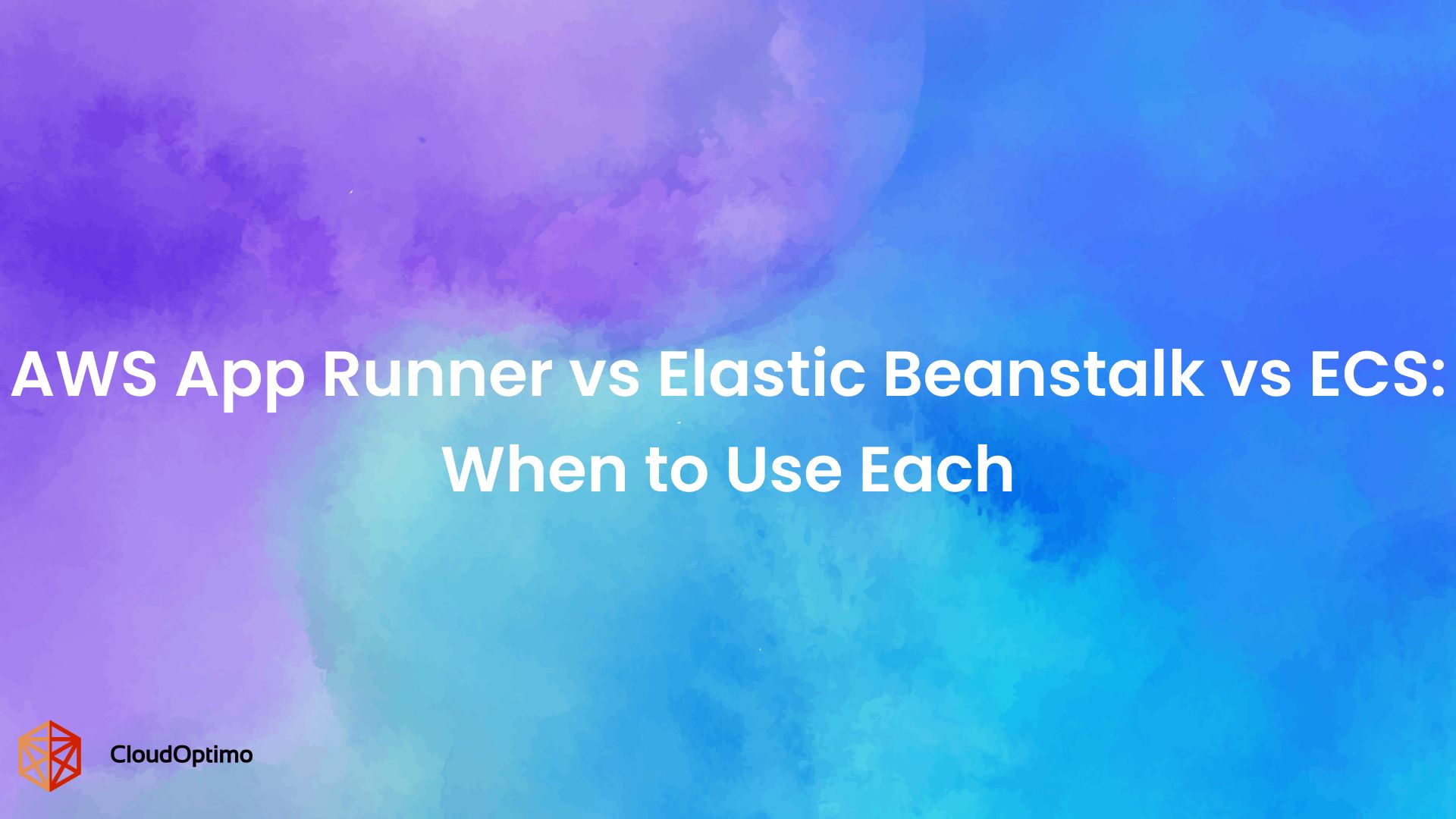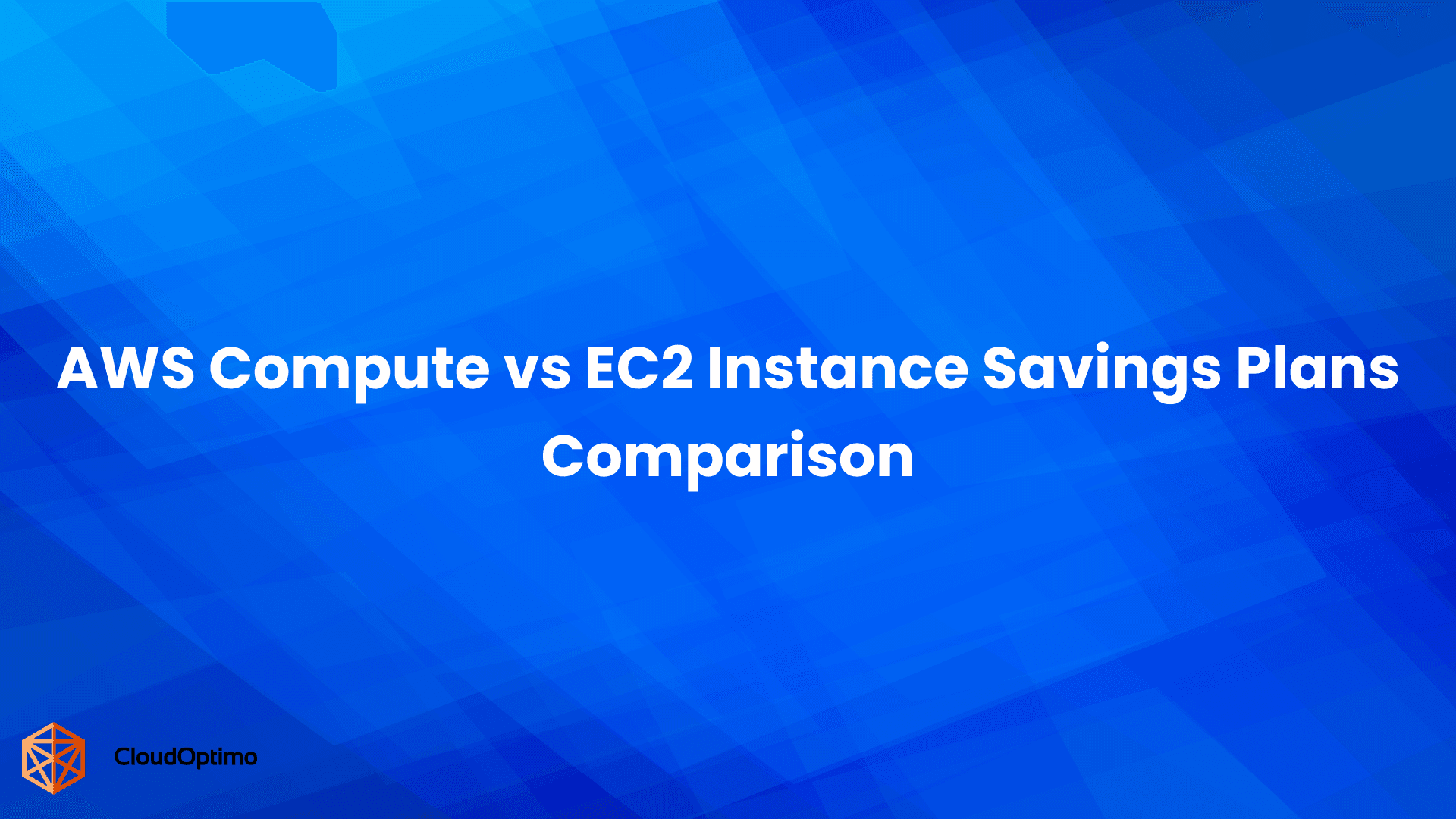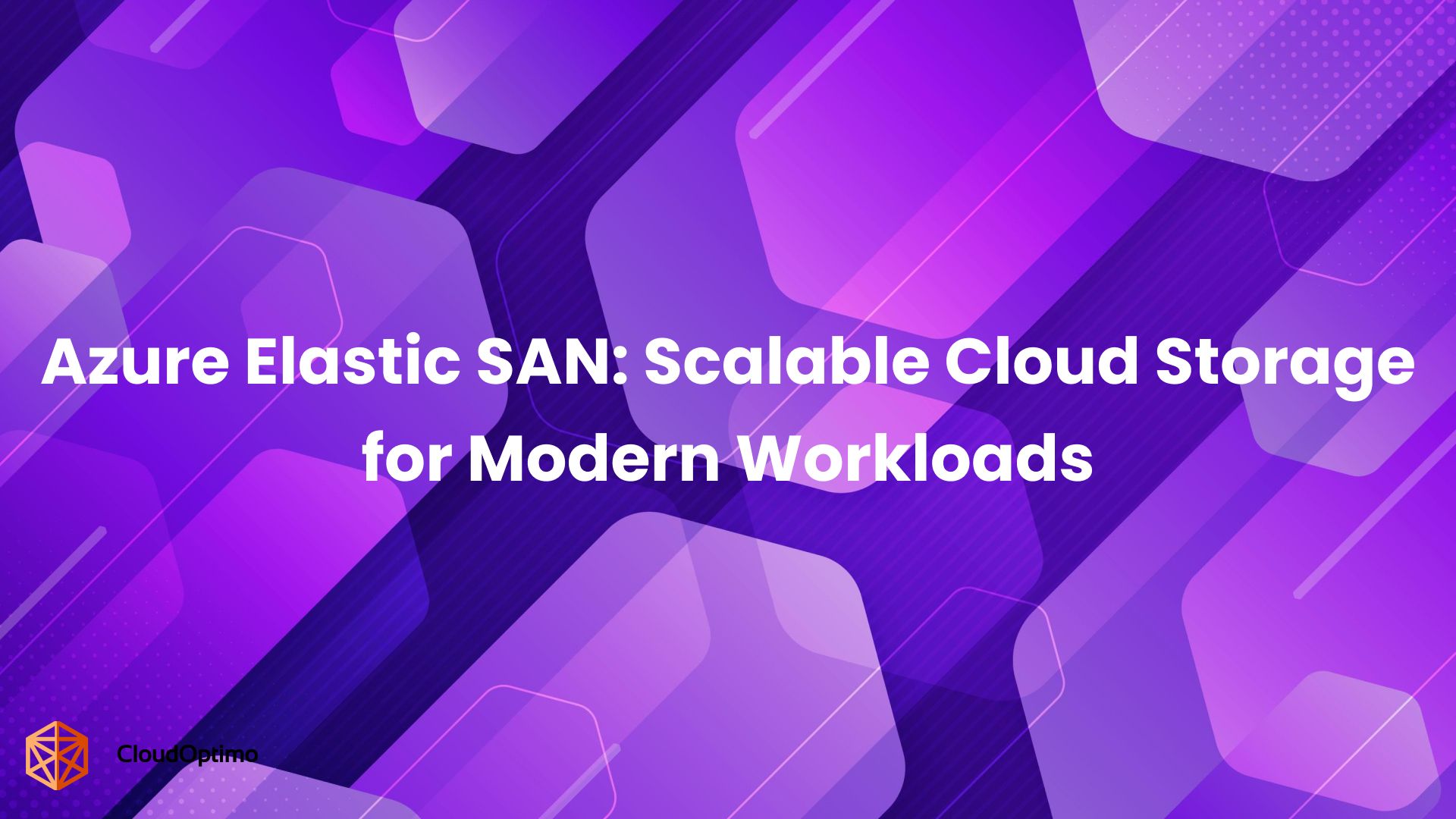Introduction
In this era of a data-driven world, businesses of all sizes are creating information at an alarming rate. From marketing materials and financial activity to customer data and product designs, This digital stack requires secure, accessible, and scalable storage solutions. Cloud storage offers an innovative data management approach that goes beyond the limitations of traditional on-premises hardware.
This blog delves into the domain of cloud storage for businesses. Explore the two primary cloud storage types, learn about popular service providers giving solutions to developers and business users, and discuss critical factors to consider when selecting the right cloud storage partner.
Cloud Storage Landscape
Cloud storage points to the on-demand storage of data in remote servers accessed over the internet. This removes the need for physical storage devices on-site, offering a variety of advantages, including:
- Cost-Effectiveness: Pay-as-you-go models eliminate upfront costs associated with physical hardware and IT personnel for maintenance. You only pay for the storage you use.
- Enhanced Scalability: scale your storage capacity up or down as your business needs to evolve. No more worrying about running out of space or underutilizing expensive hardware.
- Improved Accessibility: Access your data from any device with an internet connection, which supports remote work collaboration and increased productivity.
- Robust Security: Leading cloud storage providers invest heavily in security measures, offering superior data protection compared to on-premises solutions.
- Automatic Backups: Enjoy peace of mind knowing your critical data is automatically backed up, ensuring disaster recovery and business continuity.
Understanding Cloud Storage Types
Before diving into specific service providers, it's crucial to understand the two main cloud storage categories catering to distinct needs:
1. Object Storage:
It is well-suited for storing large amounts of unstructured data, such as media files, backups, and archives, making it a popular choice for developers and IT teams.
Key Characteristics:
- Stores data as individual objects with unique identifiers, enabling efficient retrieval of specific data points.
- Highly scalable and cost-effective for massive data sets.
- Often accessed programmatically through APIs.
2. Business User Storage:
Ideal for: Teams collaborating on documents, spreadsheets, presentations, and other business-critical files.
Key Characteristics:
- Designed for user-friendly file management, sharing, and collaboration.
- Offers features like real-time co-editing, version control, and permission management.
- Integrates seamlessly with popular productivity suites like Microsoft Office 365 and Google Workspace.
3. Additional Considerations
- Block Storage: suitable for running operating systems, databases, and applications on virtual machines within the cloud. Block storage presents storage as fixed-size blocks, similar to a traditional hard drive. This offers high performance for frequent read/write operations, making it ideal for applications requiring predictable performance (e.g., virtual desktops).
- Storage Classes: Cloud storage providers typically offer various storage classes within each main storage type (object and block). These classes differ in access speed, cost, and retrieval options. Here are some common examples:
- Standard Storage: Provides readily available data with a balance between performance and cost.
- Nearline Storage: Ideal for less frequently accessed data, offering lower costs with slightly longer retrieval times compared to standard storage.
- Coldline Storage: Designed for infrequently accessed data with the most cost-effective storage but requiring longer retrieval times.
- Archive Storage: The most economical option for long-term archival data, often requiring manual retrieval requests.
Why Invest in Business Cloud Storage?
Free cloud storage services might seem like a budget-friendly option for your business, but they lack the robust features crucial for professional data management. Business cloud storage offers a comprehensive suite of benefits that justify the investment.
Here's why free personal plans fall short and how business cloud storage empowers your company:
- Offload Infrastructure Management: Business plans eliminate the burden of managing and maintaining servers. The cloud storage provider manages everything, freeing up your IT team's time and resources.
- Scalable Storage: Accommodate your growing data needs with plans offering significant storage capacities, some even scaling infinitely.
- Ironclad Security: Business plans prioritize data security with features like encryption, access controls, and remote wipe capabilities, ensuring your sensitive information remains protected.
- Integration Powerhouse: Connect seamlessly with the business tools you already use, streamlining workflows and enabling automatic data synchronization.
- Collaborative Hub: Facilitate seamless teamwork with features for shared access, file editing, and real-time document collaboration, all accessible from any device.
- Disaster Recovery at Your Fingertips: Business plans often involve data backups stored across geographically dispersed data centers. This redundancy safeguards your data against hardware failures or security incidents.
- Application Management: Leverage version control, application development environments, and other features to streamline development processes and ensure business continuity.
- Data-Driven Insights: Certain plans offer data analytics tools powered by AI and machine learning, allowing you to extract valuable insights from your data to inform strategic decisions.
- Compliance Confidence: Business cloud storage providers adhere to industry best practices and recognized data storage frameworks, giving you peace of mind regarding data compliance and customer privacy.
These features are indispensable for companies with expanding data needs and sensitive information to protect.
Top Cloud Storage Providers for Developers and IT Teams
The market offers a diverse range of cloud storage solutions tailored for developers and IT professionals. Here are some of the leading contenders:
| Cloud Storage Provider | Key Features | Ideal for |
| Amazon Simple Storage Service (S3) | Highly scalable, cost-effective, and offers a range of storage classes for diverse needs. | Large-scale data storage, backups, and application development. |
| Microsoft Azure Blob Storage | Integrates seamlessly with other Azure services and offers various access tiers for optimized cost management. | Cloud-native applications, big data analytics, and disaster recovery. |
| Google Cloud Storage | Versatile storage options with regional pricing for geographically distributed data. | Media libraries, application data, and machine learning workloads. |
| Backblaze for Business | Simple and affordable solution with unlimited storage and automatic daily backups. | Long-term data archiving and backups. |
| Wasabi Hot Cloud Storage | High-performance object storage with pay-as-you-go pricing and predictable costs. | Active data archives, media repositories, and content delivery networks. |
| DigitalOcean Spaces | Cost-effective object storage with simple integration for developers using DigitalOcean cloud solutions. | Static website hosting, application backups, and developer workflows. |
| IBM Cloud Object Storage | Integrates with other IBM Cloud services for a comprehensive cloud solution. | Scalable storage for big data analytics, AI workloads, and cloud-native applications. |
| Linode Object Storage by Akamai | Combines Linode's cloud infrastructure with Akamai's global content delivery network for enhanced performance. | Media and content distribution, application data storage, and backups. |
Top Cloud Storage Providers for Business Users
For teams seeking a collaborative and user-friendly cloud storage solution, here are some popular options:
| Cloud Storage Provider | Key Features | Benefits for Business Users |
| Dropbox Business | User-friendly interface, robust file sharing controls, and advanced security features. | Streamlined file sharing and collaboration, secure access management, and remote work capabilities. |
| Microsoft OneDrive for Business | Seamless integration with Microsoft Office 365 applications, real-time co-editing, and version control. | Enhanced productivity for teams using Microsoft applications, centralized document management, and offline file access. |
| IDrive for Business | Affordable, feature-rich solution with unlimited storage, military-grade encryption, and comprehensive backup capabilities. | Cost-effective storage for large teams, robust data security, and disaster recovery protection. |
| Sync.com for Teams | Focuses on privacy and security with zero-knowledge encryption, user activity auditing, and granular permission controls. | Ideal for businesses handling sensitive data, transparent data handling practices, and compliance with data privacy regulations. |
| Nextcloud Enterprise | Open-source self-hosted cloud storage solution offering high customization and on-premises data control. | Ideal for organizations with specific security requirements or those seeking control over their data storage infrastructure. |
Choosing the Perfect Cloud Storage Partner
With a multitude of cloud storage providers available, selecting the ideal solution for your business requires careful consideration of several key factors:
- Storage Capacity: Determine your current and projected storage needs, factoring in data growth over time.
- Data Durability and Availability: Evaluate the provider's uptime guarantees, redundancy measures, and disaster recovery protocols to ensure data accessibility and business continuity.
- Security Features: Assess the provider's security controls, including encryption standards, access management protocols, and data protection certifications.
- Subscription Plans: Compare pricing models, storage tiers, and available features within each plan to identify the most cost-effective option for your needs.
- Number of Users: Consider the number of users who will require access to the cloud storage solution and choose a plan that accommodates your team size.
- Integrations with Other Tools: Ensure the cloud storage service integrates seamlessly with the productivity suites, collaboration tools, and other business applications your team utilizes.
Some of the leading cloud storage options for Developer and IT teams :
Amazon S3
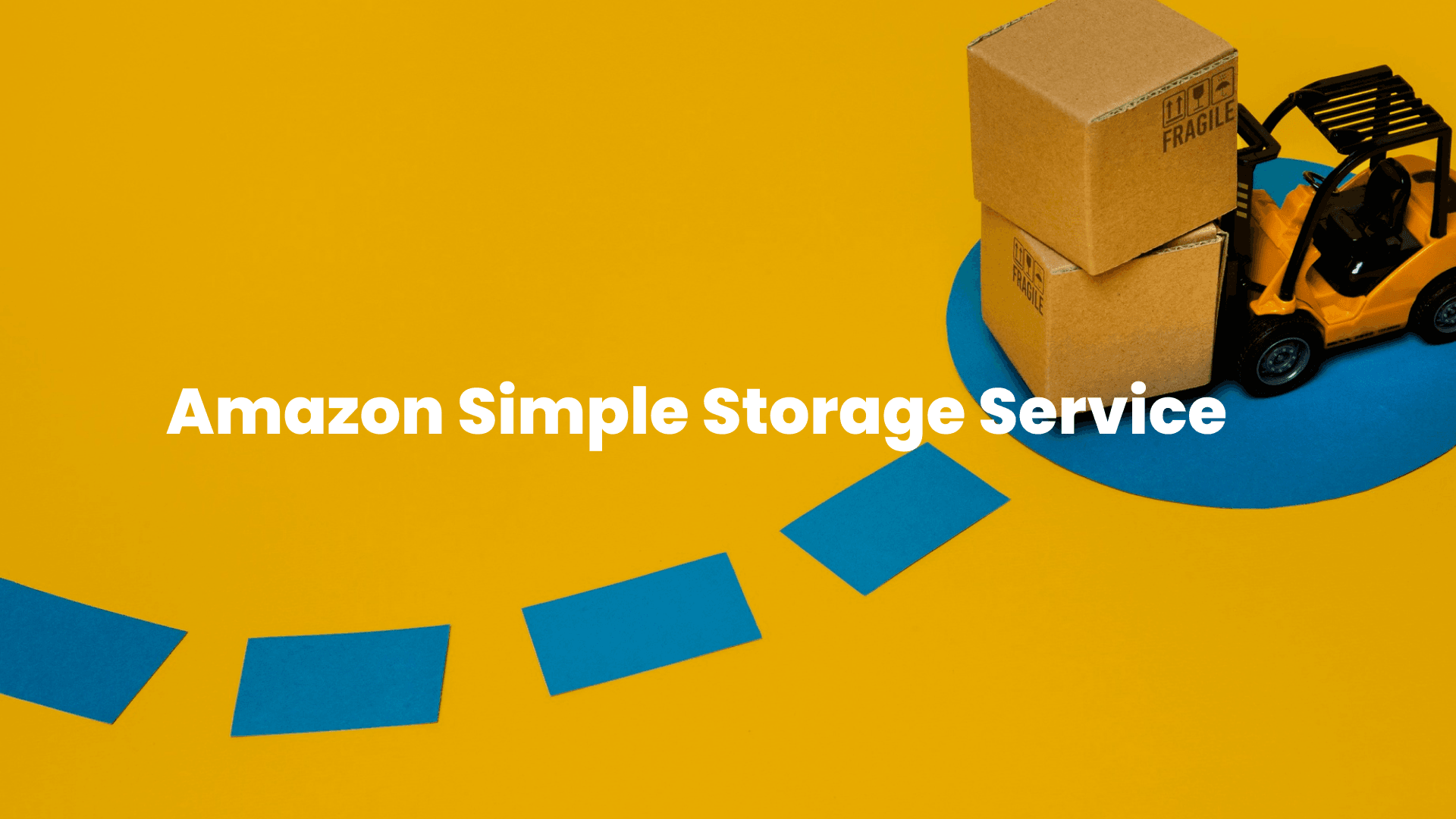
Amazon Simple Storage Service (S3) is a powerhouse cloud storage solution offered by Amazon Web Services (AWS). It provides highly scalable object storage, meaning you can store any amount of data, from a single family photo to massive datasets. S3 is known for its reliability, boasting 99.999999999% (11 nines) of data durability, ensuring your information remains secure.
Amazon S3 Storage Plans and Pricing
Description of Storage Classes:
- S3 Standard: Ideal for frequently accessed data like application files, websites, and backups. Offers high availability and fast retrieval speeds.
- S3 Standard-Infrequent Access (S3 Standard-IA): Cost-effective option for data accessed less frequently but still requires occasional retrieval (e.g., monthly reports, archives). Lower storage costs compared to S3 Standard.
- S3 One Zone-Infrequent Access (S3 One Zone-IA): Similar to S3 Standard-IA but stores data in a single Availability Zone (reduced redundancy for even lower costs). Ideal for data with very low retrieval frequency.
- Amazon S3 Glacier Instant Retrieval: Suitable for rarely accessed data that needs near-instant retrieval times (e.g., legal documents, historical data). Lower storage costs but retrieval fees apply.
- Amazon S3 Glacier Flexible Retrieval: Designed for data with unpredictable access patterns. Offers retrieval flexibility with varying retrieval times and associated costs.
- Amazon S3 Glacier Deep Archive: Most cost-effective option for long-term archival data with infrequent retrieval needs (e.g., medical records, historical backups). Lowest storage costs but incurs retrieval fees with longer retrieval times.
S3 Intelligent-Tiering: Machine learning-powered storage class that automatically transitions data between access tiers (Standard, S3 Standard-IA) based on usage patterns. Optimizes cost for data with unknown or changing access needs.
| Storage Class | Description | Pricing (per GB per Month) | Retrieval Fees |
| S3 Standard | Frequently accessed data | Starts at $0.0235 | No |
| S3 Standard-IA | Less frequently accessed data | Starts at $0.0125 | Apply |
| S3 One Zone-IA | Very low-frequency access | Starts at $0.0100 | Apply |
| S3 Glacier Instant Retrieval | Rarely accessed, near-instant retrieval | Starts at $0.0100 | Apply |
| S3 Glacier Flexible Retrieval | Unpredictable access patterns | Starts at $0.0040 | Vary based on retrieval time |
| S3 Glacier Deep Archive | Long-term archival data | Starts at $0.00099 | Apply (longer retrieval times) |
| S3 Intelligent-Tiering | Automatically tiered data | - Standard: Starts at $0.0235 - S3 Standard-IA: Starts at $0.0125 | - Standard: No - S3 Standard-IA: Apply |
Note: Prices listed are for the US East (Ohio) Region. Pricing may vary depending on the chosen region. Refer to the official AWS S3 pricing page for the latest rates and additional details on data transfer and other charges.
Amazon S3: Strengths and Considerations
Strengths:
- Unmatched Scalability: Effortlessly adjust storage capacity on-demand, accommodating growth or fluctuating data volumes.
- Exceptional Durability: S3 boasts industry-leading data durability with 11 nines (99.999999999%) to ensure exceptional information protection.
- Robust Security: Granular access controls and encryption features safeguard your data, giving you peace of mind.
- Optimized Storage Options: A diverse range of storage classes (Standard, Glacier, etc.) allows you to tailor storage costs based on how frequently you access your data.
- Unparalleled Versatility: Store virtually any data type imaginable, from images and videos to backups and application data.
- Global Accessibility: Access your data from anywhere in the world with an internet connection, fostering remote collaboration and data availability.
- Seamless Integration: S3 integrates effortlessly with other AWS services, creating a cohesive cloud ecosystem for your needs.
- Cost-Effectiveness: The pay-as-you-go model ensures you only pay for the storage you use, making it a budget-friendly option for various scenarios.
- Free Tier Exploration: The AWS free tier provides limited storage for new users to experiment with S3's functionalities before committing.
Considerations:
- Potential for Complexity: While user-friendly, managing large-scale deployments with diverse storage options might necessitate some technical expertise.
- Egress Fee Impact: Data transfer out of S3 incurs egress fees, which can become a cost factor depending on data volume and retrieval frequency. For the most up-to-date egress pricing details, refer to the official AWS S3 pricing page.
- Vendor Lock-In Potential: Heavy reliance on AWS services can lead to vendor lock-in, making it more challenging to switch providers in the future.
- Limited Local Options: S3 primarily focuses on cloud storage, with limited functionality for on-premises or hybrid storage solutions.
- Management Overhead: Managing S3 storage for very large datasets or complex configurations can require dedicated resources and ongoing administration.
- Pricing Structure Complexity: While cost-effective for many users, the pricing structure can become intricate for highly dynamic data access patterns.
Evaluating storage class options, egress fees, and other cost factors empowers you to choose the most cost-efficient Amazon S3 storage plan for your specific requirements.
Microsoft Azure Blob Storage
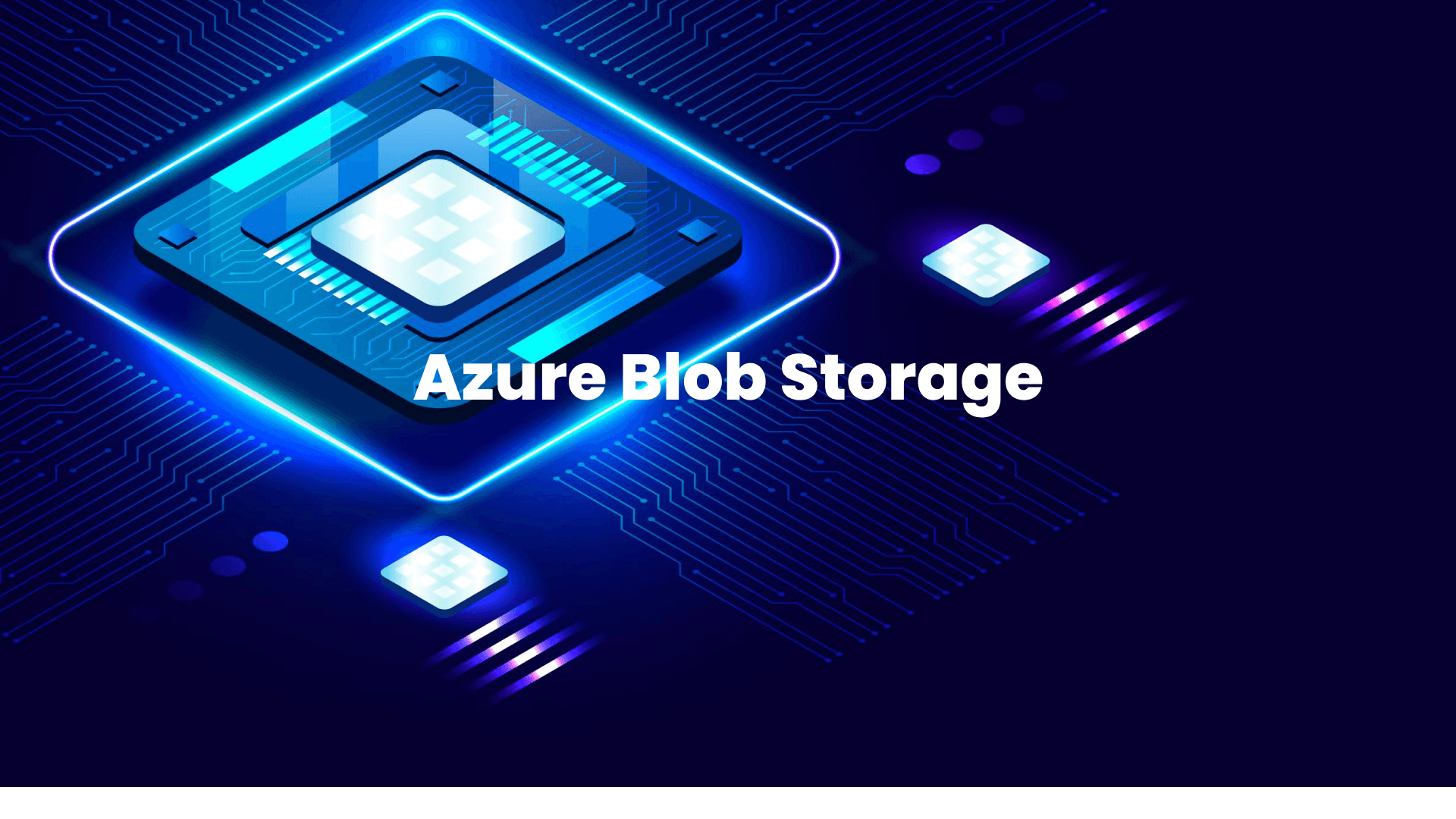
If you're seeking a scalable, secure, and cost-effective cloud storage solution for diverse data types, then Microsoft Azure Blob Storage is a compelling option. Microsoft Azure Blob Storage stands out as a feature-rich cloud storage solution designed for exceptional scalability, robust security, and cost-efficiency. It caters to a broad spectrum of data types, excelling in storing unstructured data like text files, images, videos, and backups.
Cost Influencers:
- Storage Tiers: Select from a range of storage tiers designed for various access frequencies and cost structures:
- Hot storage: Ideal for frequently accessed data, providing high performance and immediate availability (comes at a higher cost per gigabyte).
- Cool storage: Suitable for less frequently accessed data, striking a balance between affordability and accessibility (lower cost than hot storage).
- Archive storage: Most cost-effective option for rarely accessed data with infrequent retrieval needs (incurs retrieval fees when accessing data).
- Data Redundancy Options: Azure Blob Storage offers various redundancy levels to ensure data availability:
- Locally Redundant Storage (LRS): Most cost-effective but data resides within a single data center (limited disaster recovery capabilities).
- Geo-Redundant Storage (GRS): Replicates data across geographically separate regions for high availability (higher cost than LRS).
- Zone-Redundant Storage (ZRS): Replicates data within the same region across availability zones for fault tolerance within the region (cost between LRS and GRS).
- Data Transfer: Costs are associated with data transfer into and out of Azure Blob Storage:
- Inbound: Uploading data is typically free.
- Outbound (Egress): Downloading data incurs fees based on volume, destination location, and data transfer tier (standard or high-performance).
Azure Blob Storage Pricing Transparency:
- Storage Costs: The per GB per month cost varies depending on the chosen storage tier (Hot, Cool, Archive). Refer to the official Azure Blob Storage pricing page for the latest rates.
- Data Transfer Costs: Inbound data transfer is generally free. Outbound (egress) fees depend on data volume, destination, and transfer tier. Consult the pricing page for details.
- Transaction Costs: Minimal costs associated with specific operations like listing containers or blobs. These costs are typically negligible for most use cases.
- Replication Costs: Locally Redundant Storage (LRS) is the most cost-effective. Geo-redundant (GRS) and zone-redundant (ZRS) options incur slightly higher costs for enhanced data availability.
Optimizing Your Costs:
- Tiering Strategy: Move infrequently accessed data to cooler tiers for significant cost savings.
- Lifecycle Management: Utilize lifecycle management features to automatically transition data between tiers based on access patterns.
- Data Transfer Efficiency: Plan data transfer needs strategically to minimize egress costs. Consider off-peak hours when rates might be lower.
Azure Blob Storage Strengths:
- Highly Scalable: Can store massive amounts of data, easily scaling up or down based on your needs.
- Cost-Effective: Pay-as-you-go model, only charged for the storage you use.
- Durable: Designed for 99.99999999999999999% durability, ensuring data redundancy and minimal risk of loss.
- Accessible: Accessible from anywhere in the world with an internet connection.
- Variety of Data Types: Stores various data types, including unstructured (text, blobs), semi-structured (JSON, XML), and even structured data.
- Security Features: Offers robust security features like access control lists (ACLs) and encryption for data protection.
- Integration with Other Services: Integrates seamlessly with other Azure services like Azure VMs, Machine Learning, and Logic Apps.
Azure Blob Storage Weaknesses:
- Not for Frequent Updates: Not ideal for frequently updated data due to higher latency compared to database solutions.
- Limited Functionality for Data Manipulation: Designed for storage, not complex data manipulation. Consider using Azure Data Lake Storage for complex data processing.
- Costs for Frequent Access: Frequent data retrieval can lead to higher egress charges.
- Not Optimized for Low Latency: May not be suitable for real-time applications requiring very low latency access.
Azure Blob Storage excels in storing large volumes of data in a scalable, cost-effective, and secure manner. However, it's not ideal for frequently changing data or applications requiring low-latency access and complex data manipulation.
Google Cloud Storage
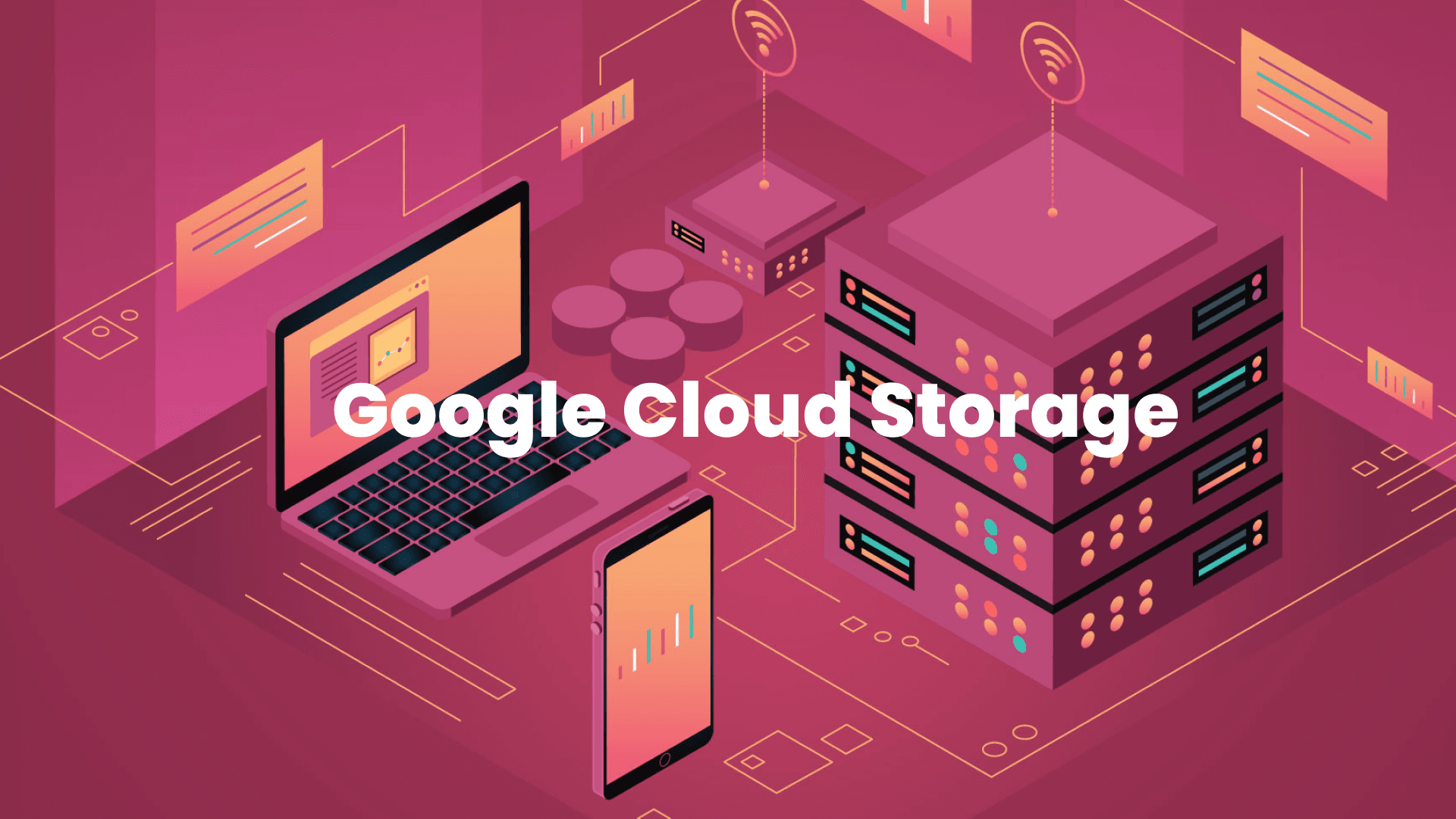
Google Cloud Storage empowers you to store and manage your data effortlessly within Google's secure cloud infrastructure. This versatile service offers exceptional scalability, making it ideal for businesses of all sizes.
Here's what sets Google Cloud Storage apart:
- Object-based Organization: Store your data in flexible units called objects, which can be any file type. These objects are grouped within buckets, creating a user-friendly way to organize your information.
- Seamless Scaling: As your data needs evolve, Google Cloud Storage effortlessly adapts. Effortlessly scale storage up or down to perfectly match your requirements.
- Fort Knox-Level Security: Rest assured, your data is protected with industry-leading security features. Access control lists and encryption ensure only authorized users can access your information.
- Global Accessibility: Get to your data anytime, anywhere. With an internet connection, you can access your stored objects from anywhere in the world.
- Cost-Effective Storage: Pay only for the storage you use. Google Cloud Storage utilizes a pay-as-you-go billing model, keeping your costs predictable and manageable.
- Data Versatility: No matter your data format, Google Cloud Storage has you covered. Store unstructured data like text and blobs, semi-structured data like JSON and XML, and even structured data with ease.
- Effortless Integration: Google Cloud Storage integrates seamlessly with other Google Cloud services. This allows you to leverage functionalities like virtual machines, machine learning tools, and workflow management applications for a unified data experience.
In essence, Google Cloud Storage provides a powerful and secure foundation for storing and managing your data. Its scalability, affordability, and integration capabilities make it an ideal choice for businesses seeking a robust cloud storage solution.
Google Cloud Storage Plans and Pricing
Unlike some personal cloud storage providers, Google Cloud Storage doesn't offer pre-defined plans with set storage limits. It provides a pay-as-you-go billing system based on a tiered storage class structure. This allows you to choose the storage option that best suits your data access needs and budget.
Storage Classes: Align Storage with Access Frequency
Google Cloud Storage offers a range of storage classes, each with varying retrieval speeds and pricing:
Choosing the Right Storage Class:
- Standard: Ideal for actively used data that requires fast retrieval speeds. This class offers a good balance between cost and performance.
- Coldline: Perfect for data that you don't need to access frequently but want to keep readily available. It offers significant storage cost savings compared to Standard.
- Nearline: A good option for data that is accessed occasionally but not constantly. It provides lower storage costs than Standard but with some retrieval fees.
- Archive: This class is best for rarely accessed data, such as backups or historical records. It offers the lowest storage cost but has the highest retrieval fees
| Storage Class | Use Case | Retrieval Speed | Cost Focus |
|---|---|---|---|
| Standard | Data accessed frequently (daily or weekly) | High | Balanced cost and performance |
| Coldline | Data accessed infrequently (a few times per year) | Lower than Standard | Low storage cost |
| Nearline | Data accessed less frequently than Standard (monthly access) | Lower than Standard | Lower storage cost with some retrieval fees |
| Archive | Data rarely accessed (for compliance or backups) | Lowest | Lowest storage cost with highest retrieval fees |
Understanding Your Costs:
While specific pricing can vary depending on storage usage, data access frequency, and egress (data transfer out of Google Cloud), Google provides a pricing calculator tool: [link to Google Cloud Storage pricing calculator]. This tool helps you estimate your storage costs based on your individual needs.
Free Tier for Exploration:
Google Cloud Storage offers a free tier with 5GB of storage, allowing you to experiment with the service and explore its functionalities before committing to a paid plan.
Google Cloud Storage Strengths
Google Cloud Storage stands out as a robust object storage service offering businesses a multitude of advantages. Here's a closer look at its key strengths:
- Unmatched Scalability: Google Cloud Storage effortlessly adapts to your data growth. Scale storage up or down seamlessly, making it perfect for businesses with fluctuating storage requirements, from startups to large enterprises.
- Fort Knox-Level Security: Rest assured, your data is secured with industry-leading safeguards. Granular access control lists and encryption technologies ensure only authorized users can access your information, providing peace of mind.
- Pay-As-You-Go Efficiency: Unlike traditional storage solutions with fixed costs, Google Cloud Storage utilizes a pay-as-you-go billing model. This translates to cost-effectiveness, as you only pay for the storage you actually use.
- Global Accessibility and Performance: Experience high-performance data retrieval from anywhere in the world. With an internet connection, you can access your stored objects, ensuring global reach and responsiveness for your data needs.
- Data Format Agnostic: No need to worry about data compatibility. Google Cloud Storage welcomes various data types, including unstructured (text, blobs), semi-structured (JSON, XML), and even structured data, offering exceptional versatility.
- Streamlined Integration: A major strength lies in Google Cloud Storage's seamless integration with other Google Cloud services. This allows you to leverage functionalities like virtual machines, machine learning tools, and workflow management applications, creating a unified and streamlined data management ecosystem.
- Optimized Storage Classes: The tiered storage class system empowers you to choose the most cost-effective option. Select the storage class (Standard, Coldline, Nearline, Archive) that aligns with your data access frequency, striking a perfect balance between affordability and performance.
Google Cloud Storage Weaknesses:
- Learning Curve for Beginners: The tiered storage class system with varying access speeds and pricing structures can present a steeper learning curve for new users compared to simpler personal cloud storage options.
- Frequent Access Costs: While cost-effective for long-term storage, frequent data retrieval, especially from lower storage tiers, can lead to additional egress fees. This is a consideration if you anticipate needing frequent access to your data.
- Real-Time Application Limitations: Designed for object storage, Google Cloud Storage isn't ideal for real-time data processing applications requiring extremely low latency data access. Consider alternative solutions for such use cases.
- Potential Vendor Lock-In: Migrating away from Google Cloud Storage to another cloud provider can be complex due to potential integration challenges and the need to adapt to different storage management interfaces.
By carefully weighing these strengths and weaknesses, you can make an informed decision about whether Google Cloud Storage aligns with your specific data storage requirements.
Blackblaze
Backblaze carves a unique niche in the cloud storage market, offering robust solutions for both individuals and businesses. Here's what sets them apart:
- Effortless Personal Backup: Safeguard your irreplaceable photos, documents, and other files with Backblaze's unlimited cloud backup. Their simple software automates backups from your computer, providing peace of mind against accidental deletion, hardware failure, or even natural disasters.
- Budget-Friendly Business Storage: Backblaze B2 Cloud Storage empowers businesses with a secure and highly scalable object storage solution. Unlike competitors, Backblaze B2 boasts significantly lower costs, making it a game-changer for businesses seeking a cost-effective cloud storage option without sacrificing quality or reliability.
- Security at the Forefront: Backblaze prioritizes data security. They utilize robust encryption methods to protect your information, both during transfer and while stored. Additionally, granular access controls ensure that only authorized users can access your valuable data.
- Seamless S3 Compatibility: For businesses already invested in the Amazon S3 ecosystem, Backblaze B2 offers a smooth transition. Their S3-compatible API allows you to leverage existing S3 tools and applications with minimal disruption, streamlining the move to Backblaze's cost-effective storage solution.
- Designed for Simplicity: Backblaze prioritizes user-friendliness. Their personal backup software is intuitive and easy to set up, while Backblaze B2 offers a user-friendly web console and comprehensive APIs for developers.
- A Proven Track Record: Backblaze has a well-established reputation for reliability. With over a decade of experience managing billions of gigabytes of data, they offer a dependable cloud storage solution you can trust.
In a nutshell, Backblaze stands out as a compelling choice for those seeking a secure, affordable, and user-friendly cloud storage solution.
Blackblaze Storage Plans and Pricing
Backblaze cuts through the complexity of cloud storage pricing with clear-cut plans designed for both personal and business users. Here's a breakdown of what to expect:
For Individuals:
Backblaze Personal Backup: This plan boasts a single, budget-friendly price point: Unlimited cloud backup for a low monthly fee. Forget storage tiers or limitations. Simply install the software and enjoy comprehensive backup for all your computer's data, ensuring peace of mind in case of accidental deletion, hardware failure, or even natural disasters.
For Businesses:
Backblaze B2 Cloud Storage: Backblaze B2 offers a pay-as-you-go billing model, empowering businesses to tailor storage costs to their specific needs. Here's a closer look at the key pricing factors:
Storage Used: You only pay for the amount of data you store within your Backblaze B2 buckets.
Data Transfer: Backblaze doesn't charge for data transfer within its network. However, egress fees apply for data transferred out of Backblaze B2 (e.g., downloading data).
Plan Comparison at a Glance:
This table summarizes the Backblaze storage options:
| Plan | Target User | Pricing Model | Key Features |
| Backblaze Personal Backup | Individuals | Unlimited monthly fee | Unlimited cloud backup for the entire computer |
| Backblaze B2 Cloud Storage | Businesses | Pay-as-you-go | Scalable storage, S3 compatibility, granular access control |
Additional Considerations for Backblaze B2:
- Free Tier: Backblaze B2 provides a generous free tier with 10GB of storage and free data transfer within their network. This allows you to experiment with the service before committing to a paid plan.
- Customization for Businesses: Backblaze B2 offers granular control over storage lifecycle management. You can define rules for data deletion or transition to lower-cost storage tiers based on your specific needs, optimizing storage costs.
In essence, Backblaze's pricing structure prioritizes transparency and affordability. The unlimited backup plan for individuals delivers exceptional value, while the pay-as-you-go model with a free tier empowers businesses to optimize costs based on their data storage and transfer requirements.
Backblaze Storage carves out a niche in the market by offering a compelling combination of affordability, user-friendliness, and security.
Let's explore its strengths:
- Cost Champion: Backblaze shines with significant cost savings compared to many cloud storage providers, especially for businesses utilizing the pay-as-you-go Backblaze B2 Cloud Storage plan. This makes it an attractive option for budget-conscious users.
- Straightforward Approach: Backblaze prioritizes user-friendly interfaces. Their personal backup software is intuitive for easy setup, and Backblaze B2 offers a user-friendly web console alongside well-documented APIs for developers.
- Security at the Forefront: Data security is paramount to Backblaze. They employ robust encryption methods to safeguard your information during transfer and while stored. Additionally, granular access controls ensure that only authorized users can access your valuable data.
- Seamless S3 Integration for Businesses: Backblaze B2 integrates effortlessly with Amazon S3. This allows businesses already invested in the S3 ecosystem to leverage existing S3 tools and applications with minimal disruption when transitioning to Backblaze's cost-effective storage solution.
- Unlimited Personal Backup Option: Backblaze Personal Backup provides a compelling solution for individuals with its unlimited backup plan for a monthly fee. This offers peace of mind for irreplaceable personal files.
However, Backblaze Storage also has some limitations:
- Focus on Core Functionalities: Backblaze B2 prioritizes core functionalities and may lack some advanced features offered by competitors, such as file versioning or built-in data encryption options.
- Potential Vendor Lock-In: While Backblaze B2 offers S3 compatibility, migrating away from Backblaze entirely can be complex due to potential integration challenges and the need to adapt to different storage management interfaces.
- Not Ideal for Real-Time Needs: Designed for object storage, Backblaze B2 isn't ideal for real-time data processing applications requiring extremely low latency data access. Consider alternative solutions for such use cases.
- Egress Fees for Businesses: The pay-as-you-go model of Backblaze B2, while cost-effective for long-term storage, can lead to additional egress fees for businesses that require frequent data retrieval, especially from lower storage tiers.
By carefully weighing these strengths and weaknesses, you can determine if Backblaze Storage aligns with your specific cloud storage needs.
Wasabi Hot Cloud Storage
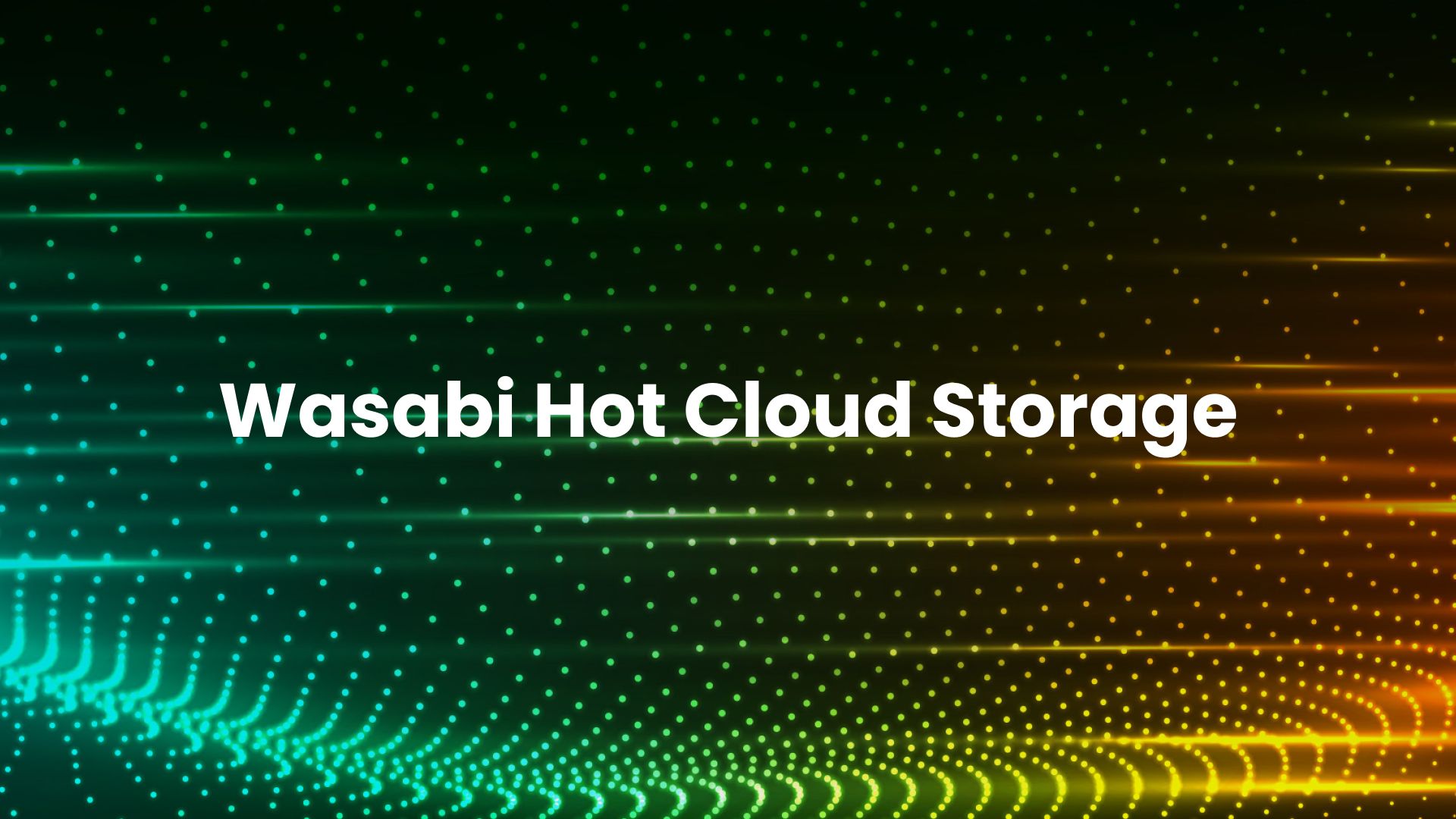
Wasabi Hot Cloud Storage breaks the mold in the cloud storage market by offering a straightforward and budget-friendly solution. Let's delve into what makes Wasabi unique:
- Universal Storage: A Paradigm Shift: Ditch the complexities of multi-tiered cloud storage with Wasabi's innovative universal storage tier. This eliminates the need to navigate intricate pricing structures and manage various tiers based on how often you access your data. Wasabi's streamlined approach simplifies storage management and reduces administrative burden.
- Prioritizing Hot Data Performance: Wasabi prioritizes blazing-fast data access speeds, making it the perfect choice for frequently accessed data, often called "hot data." This ensures exceptional performance for applications that require rapid information retrieval, keeping your operations running smoothly and minimizing lag.
- Disruptively Affordable Pricing: Wasabi stands out for its significantly lower pricing compared to conventional cloud storage providers, particularly for hot data storage. This translates to substantial cost savings for businesses with large volumes of frequently accessed data.
- Effortless Scalability on Demand: As your data requirements evolve, seamlessly scale your Wasabi storage capacity up or down effortlessly. The universal storage tier eliminates the need to juggle data across different tiers, allowing for effortless scaling without impacting performance.
- Seamless Integration: Wasabi integrates flawlessly with industry-standard APIs like Amazon S3. This ensures compatibility with your existing cloud-based tools and applications, minimizing disruption when migrating from other storage solutions to Wasabi.
- Security and Reliability: Cornerstones of Wasabi: Data security and durability are top priorities for Wasabi. They utilize robust encryption methods to safeguard your information and employ redundant storage systems to minimize the risk of data loss. This unwavering commitment provides peace of mind for your business-critical data.
Wasabi Hot Cloud Storage presents a compelling alternative for businesses seeking a simple, scalable, and highly affordable solution for storing and accessing frequently used data. The universal storage tier eliminates management complexities, while the focus on affordability makes it an attractive option for cost-conscious businesses. With its emphasis on performance, security, and affordability, Wasabi ensures your hot data remains readily available, secure, and within budget
Wasabi Hot Cloud Storage Plannings and Pricings
Unlike competitors, Wasabi offers a single-tier plan with straightforward pricing, eliminating confusion and hidden fees.
Here's the gist:
Pay-as-you-go pricing: $0.0068 per GB/month ($6.99 per TB/month). That's it! No hidden charges.
No egress fees: Download your data as much as needed without additional costs.
Free API requests: Manage your storage without worrying about extra API call fees.
While there aren't multiple plans with varying features, Wasabi does offer options for:
- Minimum Storage: There's a 10TB minimum storage requirement when you sign up for Wasabi.
- Reserved Capacity: For businesses with consistent storage needs, Wasabi offers reserved capacity options that can potentially lead to further cost savings.
Overall, Wasabi prioritizes transparent pricing with a single tier and eliminates egress and API request fees, making it a cost-effective choice for many cloud storage needs.
Here's a breakdown of its advantages and potential drawbacks:
Pros:
- Simple and Transparent Pricing: Forget complex tiers and hidden fees. Wasabi offers a flat rate of $0.0068 per GB/month, making budgeting easier.
- Cost-Effective: No egress fees and free API requests translate to significant savings compared to providers that charge for data downloads and API usage.
- Highly Scalable: Seamlessly adjust your storage needs up or down without worrying about price hikes for different tiers. Perfect for businesses with fluctuating storage demands.
- Globally Available: Access your data from anywhere with Wasabi's geographically distributed infrastructure.
Cons:
- Limited Control: Since there's just one plan, you don't get granular control over features like access speeds or storage types (e.g., cold storage for infrequently accessed data).
- Minimum Storage Requirement: Signing up for Wasabi requires a minimum storage commitment of 10TB, which might not be ideal for smaller businesses with minimal storage needs.
- Newer Player: Wasabi is a relatively young company compared to established cloud storage giants. While they offer competitive pricing, their long-term track record may be shorter.
In summary, Wasabi Hot Storage excels with its cost-efficiency, scalability, and transparent pricing. However, the lack of plan options and the minimum storage requirement might only suit some users.
IBM Cloud Object Storage
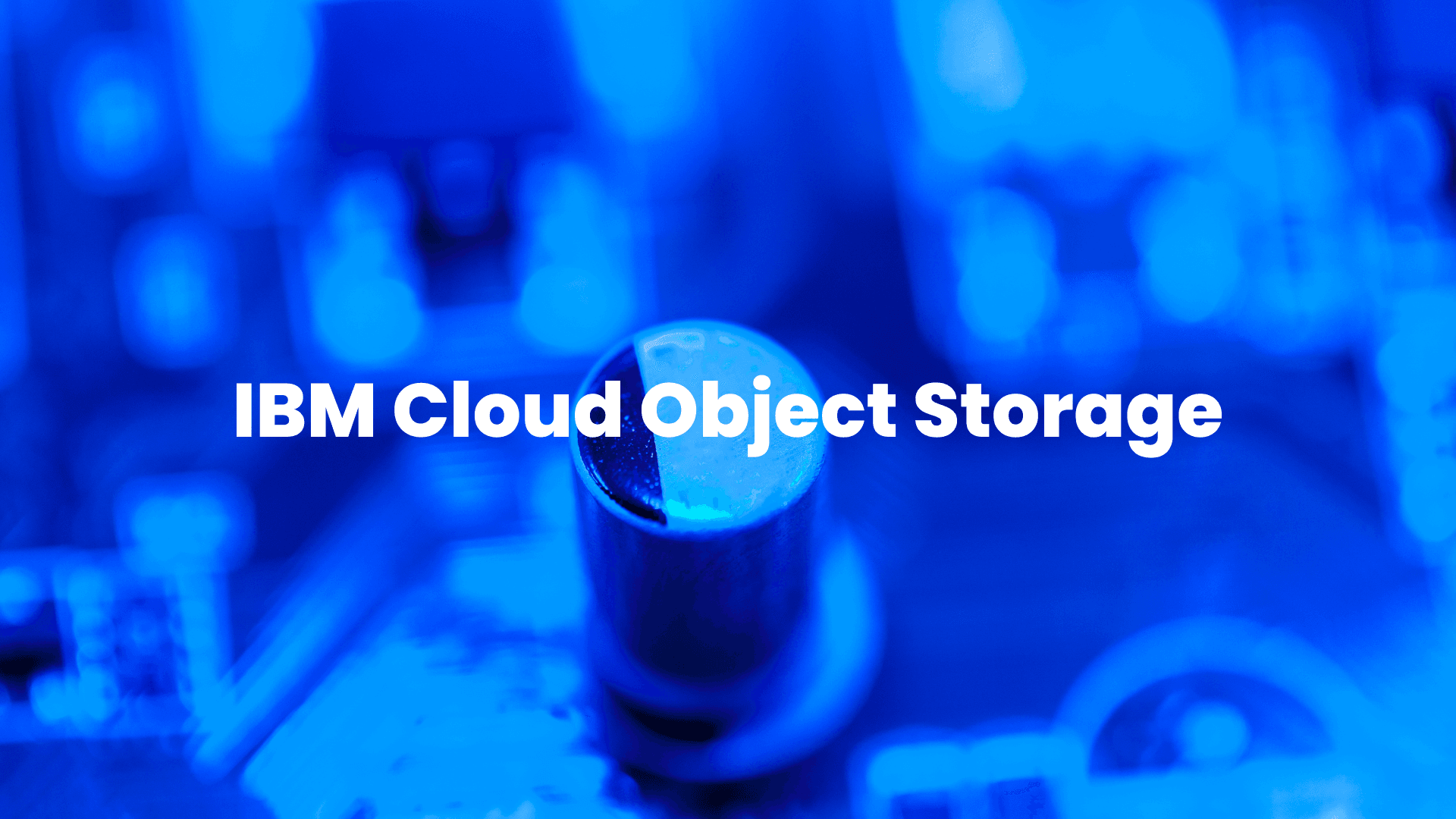
IBM Cloud Storage offers a robust set of storage solutions catering to diverse cloud storage needs. Here's a breakdown of the key services and a table for easy comparison:
IBM Cloud Storage Services:
- IBM Cloud Object Storage: This service is ideal for archiving large datasets, backups, and storing regulatory-compliant records. It offers exceptional durability, scalability, and built-in encryption for data security.
- IBM Cloud Block Storage: Designed for high-performance workloads like virtual machines and databases, Block Storage delivers dedicated, low-latency block storage volumes.
- IBM Cloud File Storage for VPC: This service provides secure, persistent file storage accessible across virtual servers within your Virtual Private Cloud (VPC) environment. It leverages the NFS protocol for familiar file-sharing functionality.
| Feature | IBM Cloud Object Storage | IBM Cloud Block Storage | IBM Cloud File Storage for VPC |
| Use Case | Archiving, Backups, Regulatory Compliance | Virtual Machines, Databases | File Sharing within VPC |
| Access Model | Object-based | Block-level | File-based (NFS) |
| Performance | Optimized for capacity and scalability | Optimized for low latency and IOPS | Optimized for file access within VPC |
| Durability | Very high (99.999999999999%) | High | High |
IBM Cloud Object Storage: Pricing and Plans
Unlike some competitors with predefined storage tiers, IBM Cloud Object Storage offers a flexible approach with two main pricing structures and additional features for cost optimization. Let's explore these options with a helpful table for comparison:
Pricing Structures:
| Feature | Standard Plan (Pay-as-You-Go) | One Rate Plans |
| Billing Model | Pay per use | Flat monthly fee |
| Ideal for | Fluctuating storage needs, mixed access frequencies | Predictable costs, high data retrieval workloads |
| Costs Include | * Storage Capacity * Outbound Bandwidth (may apply) * Operational Requests (varies by type) | * Storage Allocation (varies by region and size) * Built-in Allowances (bandwidth & operations, scales with storage) |
Additional Considerations:
Smart Tier: Automatically categorizes data into "hot," "cool," and "cold" tiers, applying the lowest rate for each.
Archive Tier: Ultra-low storage cost for rarely accessed data, but incurs retrieval fees.
Free Lite Plan: Limited free tier for basic testing.
| Feature | Standard Plan | One Rate Plans | Smart Tier | Archive Tier | Free Lite Plan |
| Billing Model | Pay-as-You-Go | Flat Monthly Fee | N/A (within Standard Plan) | N/A (separate tier) | Free |
| Ideal for | Dynamic Needs | Predictable Costs | Cost Optimization | Rarely Accessed Data | Basic Testing |
| Storage Cost | Starts at $0.00099/GB/month | Varies by region and size | Optimized based on access patterns | Very Low | N/A |
| Bandwidth Cost | May apply for data retrieval | Built-in allowances (scales with storage) | N/A (within Standard Plan) | N/A (within Standard Plan) | N/A |
| Operational Requests | Varies by type | Built-in allowances (scales with storage) | N/A (within Standard Plan) | N/A (within Standard Plan) | N/A |
IBM Cloud Storage Strengths and Weaknesses:
Strengths:
- Scalability and Flexibility: Block, file, and object storage are just a few of the options IBM provides for storage.
- Security: IBM prioritizes a "data first" approach, implementing robust security measures to keep your information safe. This includes encryption, access controls, and compliance with various industry regulations.
- Hybrid Cloud Support: Whether you prefer a fully public cloud solution, an on-premise setup, or a hybrid approach, IBM Cloud Storage can adapt to your existing infrastructure.
- Cost-Effectiveness: IBM offers flexible pricing models that can help you optimize your storage costs. Pay-as-you-go options and tiered storage plans cater to different usage needs.
- Integration with Other IBM Cloud Services: Easily integrate your storage with other IBM Cloud services like data analytics tools and AI applications, streamlining your data management workflows.
Weaknesses:
Complexity: The wide range of storage options can be overwhelming for some users, requiring careful selection based on specific requirements.
Potential Vendor Lock-in: Deep integration with other IBM Cloud services might make migrating to a different cloud provider more complex in the future.
Limited Free Tier: Unlike some competitors, IBM Cloud Storage offers a limited free tier, making it harder to test-drive the service before committing.
Overall, IBM Cloud Storage is a powerful and secure solution for businesses of all sizes.
DigitalOcean Spaces

DigitalOcean Spaces is a cloud storage solution designed for developers and businesses, offering a reliable and straight approach to storing a wide range of data, including images, videos, backups, and static website content. The following key points highlight the features of DigitalOcean Spaces:
S3 Compatibility: Spaces have been built with compatibility for Amazon's S3 API in mind. This compatibility ensures that migrating your data from other cloud providers and utilizing existing S3 client libraries requires minimal modifications.
Cost-Effectiveness: Spaces provides a competitive pricing structure compared to other cloud storage options. Starting with a single bucket for a low monthly fee, you have the flexibility to add more buckets as your requirements grow.
Built-in CDN: Spaces seamlessly integrates with a Content Delivery Network (CDN), which enhances the loading speed of your website or application by distributing content from servers located across different geographic regions.
DigitalOcean Spaces: Simple Pricing for Object Storage
DigitalOcean Spaces offers a straightforward pricing structure with one base plan and pay-as-you-go options for exceeding storage and bandwidth limits. Here's a breakdown:
Base Plan ($5 per month):
- 250 GiB of storage (cumulative across all your buckets)
- 1 TiB of outbound data transfer
- Ability to create up to 100 buckets
Additional Costs:
- Storage: $0.02 per GiB over the 250 GiB limit
- Outbound Bandwidth: $0.01 per GiB after using the 1 TiB
Free Tier:
Inbound data transfer is always free
Table Summary:
| Feature | Included in Base Plan | Additional Cost |
| Storage | 250 GiB | $0.02 per GiB |
| Outbound Bandwidth | 1 TiB | $0.01 per GiB |
| Buckets | Up to 100 | N/A |
| Inbound Bandwidth | N/A | Free |
Additional Notes:
You can create and destroy buckets as needed, offering flexibility in your storage management.
DigitalOcean offers free data transfer between Spaces buckets and Droplets located in the same region, further reducing costs for certain users.
Billing is prorated hourly, so you only pay for what you use within a month.
This pricing structure makes DigitalOcean Spaces a good option for users who need a cost-effective and scalable object storage solution.
DigitalOcean Strengths and Weakness:
Strengths:
- Effortless Setup and Management: DigitalOcean provides a streamlined interface, making it a breeze for developers to deploy and manage their cloud resources. This focus on user-friendliness is a major draw for those new to cloud environments.
- Developer DNA: DigitalOcean integrates seamlessly with popular developer tools and frameworks, providing a smooth workflow. Their powerful API empowers developers to automate infrastructure management through scripting, saving valuable time.
- Cost-Conscious Choice: When it comes to pricing, DigitalOcean stands out as a budget-friendly option, especially for smaller deployments. Their transparent pricing structure with clear pay-as-you-go plans makes cost management straightforward.
- Performance Boost with SSDs: DigitalOcean utilizes Solid State Drives (SSDs) as standard storage, offering a significant performance advantage over traditional hard disk drives (HDDs) often found in competitor plans. This translates to faster application loading times and improved responsiveness.
- Vibrant developer community: DigitalOcean cultivates a vibrant developer community with extensive documentation, tutorials, and active forums. Their customer support is known for its promptness and helpfulness, further adding to the positive user experience.
Weaknesses:
Limited Service Menu: Unlike industry giants, DigitalOcean offers a more focused selection of features and services. This might not be ideal for complex enterprise needs requiring a wider range of tools and functionalities.
Global Reach Considerations: While DigitalOcean's data center footprint is expanding, it's not as extensive as some competitors. This could potentially impact latency for users located far from their data centers.
Scaling Up Can Be Bumpy: DigitalOcean excels at handling smaller to mid-sized deployments, but scaling resources for very large applications may require more workarounds.
Cloud Servers First: While offering additional services like block storage and managed databases, DigitalOcean's primary focus remains cloud server hosting. This is not ideal for users seeking a more comprehensive suite of cloud solutions encompassing various functionalities.
By carefully considering the strengths and weaknesses of DigitalOcean, you can make an informed decision about whether it aligns with your specific cloud hosting requirements.
Linode Object Storage by Akamai
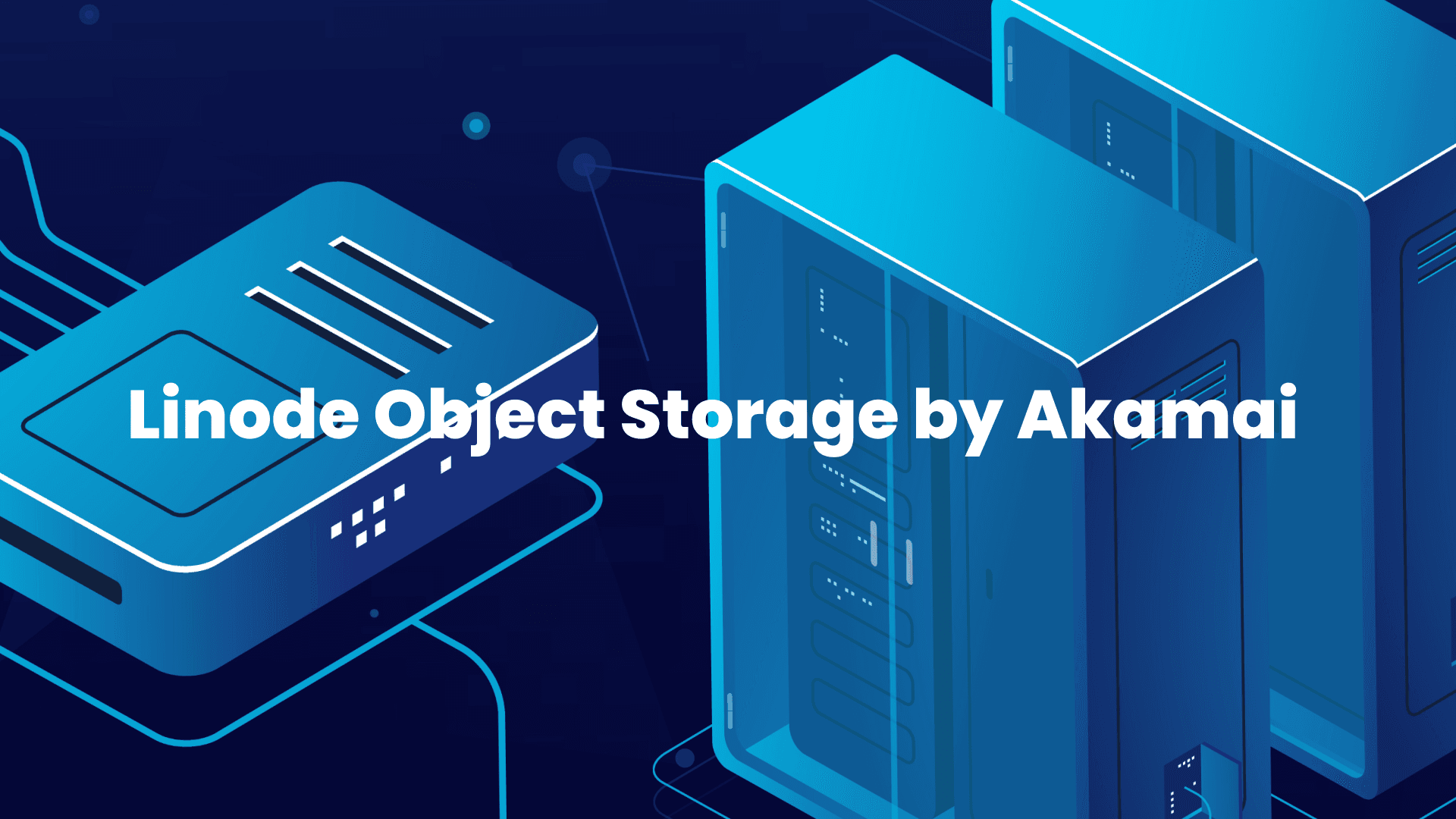
Linode Object Storage presents itself as a contender in the object storage market, offering features that cater to specific needs. Here's a breakdown of its key aspects:
- Scalability on Demand: Linode Object Storage eliminates the need for upfront hardware investment. You can scale storage capacity as your data needs change, paying only for what you use. This can be beneficial for businesses with fluctuating data requirements.
- User-Friendly Interface: The platform boasts an intuitive interface, allowing users to manage various data types, from backups and static website content to complex datasets. This ease of use can be a significant advantage for businesses seeking a streamlined storage solution.
- S3 Compatibility: Linode Object Storage offers compatibility with S3, a widely used object storage protocol. This enables seamless integration with existing S3 tools and applications, eliminating the need for extensive data migration or learning new protocols. This compatibility can be a major advantage for businesses already invested in the S3 ecosystem.
- Global Availability: The geographically distributed storage infrastructure of Linode Object Storage ensures high availability and data redundancy. This translates to reliable access to your data from anywhere in the world, minimizing downtime and maximizing accessibility. This feature can be crucial for businesses requiring consistent access to critical data.
- Security Focus: Linode Object Storage prioritizes data security by employing industry-standard security measures like access controls and encryption. This ensures the safety of your valuable information. Businesses with strict security requirements can find this focus on data protection advantageous.
It's important to compare it with other object storage providers to determine the best fit for your specific needs. Consider factors like pricing structure, additional features offered by competitors, and existing integrations within your infrastructure before making a decision.
Linode Object pricing and planning
Pricing Structure:
Linode Object Storage likely utilizes a pay-as-you-go model with tiered pricing based on storage capacity. Here's a general breakdown (check Linode's website for current pricing details):
- Pay-as-you-go: You only pay for the storage you use, ideal for fluctuating data needs.
- Tiered Pricing: The cost per gigabyte may decrease as you purchase larger storage blocks (e.g., the Bronze tier might be more expensive per GB than the Platinum tier).
Additional Costs: Consider potential data transfer fees and API request charges that can impact your overall storage expenses.
| Tier Name | Storage Capacity | Price per GB (Estimated) |
| Basic | 100 GB - 1 TB | $0.10 |
| Standard | 1 TB - 10 TB | $0.08 |
| Premium | 10 TB - 50 TB | $0.06 |
| Enterprise | 50 TB+ | Contact Sales |
Planning Considerations:
Before choosing a Linode Object Storage plan, consider these factors:
- Data Storage Needs: Assess your current and projected data storage requirements.
- Data Access Frequency: How often will you need to access your stored data? Frequent access might impact your storage tier choice.
- Budget Constraints: Set a realistic budget for your object storage needs.
- Scalability Requirements: Choose a plan that allows for easy scaling if you anticipate significant data growth.
Linode Object Storage: Strengths and Weaknesses (Pros and Cons)
Linode Object Storage offers a compelling option for cloud storage, but it's important to consider both its strengths and weaknesses before making a decision.
Strengths (Pros):
Pay-as-you-go Model: This allows for cost-efficiency, as you only pay for the storage space you actually use. Ideal for businesses with fluctuating data needs.
Scalability: Linode Object Storage allows for easy scaling up or down of storage capacity as your data requirements evolve.
S3 Compatibility: Seamless integration with existing S3 tools and applications eliminates the need to learn new protocols or migrate data.
Global Availability: Geographically distributed storage ensures high availability and data redundancy, enabling reliable access from anywhere in the world.
Security Focus: Linode prioritizes data security with industry-standard security measures like access controls and encryption.
User-Friendly Interface: The intuitive interface simplifies data management for various data types (backups, static content, complex datasets).
Weaknesses (Cons):
Limited Public Information on Pricing: Specific pricing details, particularly for tiered storage plans, might be limited on the public website. You may need to contact sales for a quote.
Potential for Additional Costs: Data transfer fees, API request charges, or egress fees can add to your overall storage expenses. Be sure to factor these in.
Limited Feature Set (Compared to Some Competitors): While Linode Object Storage offers core functionalities, some competitors might provide additional features like data lifecycle management or analytics tools.
Choosing Linode Object Storage:
Consider these factors when deciding if Linode Object Storage is right for you:
Data Needs: If your data storage requirements are straightforward and you don't require extensive features, Linode's core functionalities may suffice.
Existing Infrastructure: If you're already invested in the S3 ecosystem, Linode's S3 compatibility can be a major advantage.
By carefully evaluating Linode Object Storage's strengths and weaknesses make an informed decision about whether it's the right storage solution for you.
Cloud Solutions' Added Value
Cloud storage has transformed the landscape of data management for businesses, offering not only secure and scalable storage but also a plethora of additional functionalities that drive substantial value. This article explores these benefits, dissecting key features and their impact on business operations.
File Sharing and Collaboration:
Cloud storage simplifies file sharing and collaboration, eliminating the past challenges of email attachments and version control. Teams can now work together on documents simultaneously from any location. Features such as permission controls ensure secure access, while document version history allows for easy rollbacks if needed.
Multiple users can edit documents simultaneously.
- Version Control: Track changes, revert to previous versions, and prevent accidental overwrites.
- Granular Access Controls: Define user permissions for each document or folder to ensure data security.
- Centralized Location: Eliminate scattered data across devices and access files from anywhere with an internet connection.
Reliable Data Backup and Recovery
Data loss can occur due to unforeseen events like disasters, hardware failures, or even accidental deletion. Cloud storage offers a robust disaster recovery solution by automatically backing up data and storing copies in secure locations across different geographical regions. This ensures a swift recovery process in the event of data loss.
- Automated Backups: Schedule regular backups to a secure cloud environment, safeguarding critical data.
- Disaster Recovery: Efficiently recover lost data in case of system outages or hardware failures.
- Versioning: Revert to previous versions if needed.
- Reduced Downtime: Minimize disruptions caused by data loss and swiftly restore operations.
Enhanced Mobile Access
Cloud storage empowers employees to access and work on files from any internet-connected device. This flexibility helps in productivity, allows teams to collaborate remotely.
- Anytime & Anywhere Access: Edit documents, share files, and get together with colleagues regardless of location.
- Increased Productivity: Allows employees to work beyond the office, enhancing flexibility and efficiency.
- Improved Client Satisfaction: Provide responsive service by accessing client data and documents remotely.
- Enhanced Team Communication: Lets you have real-time collaboration with geographically dispersed teams.
Advanced Analytics Capabilities
Cloud storage platforms have evolved into more than just data repositories, offering built-in analytics tools that transform data into actionable insights. These tools help businesses to understand their data better, identify trends, and make informed decisions.
Data Visualization Tools: Present complex data sets visually for easier interpretation.
Reporting and Trend Analysis: Gain insights into user behavior and track key performance indicators.
Predictive Analytics: Forecast future trends using historical data for informed decision-making.
Improved Decision-Making: Utilize valuable insights to support strategic planning and resource allocation.
Future Trends in Cloud Storage
As cloud storage continues to evolve, several key trends are shaping its future:
- Artificial Intelligence and Machine Learning: Automation of tasks like data classification and anomaly detection will become vital.
- Hybrid and Multi-Cloud Environments: Businesses will improve on their storage costs and performance with cloud solutions.
- Focus on Data Security and Regulations: Cloud providers are constantly enhancing security features to comply with evolving data privacy regulations. This ensures your data remains protected and adheres to the latest industry standards.
- Exploring Future Security Advancements: Cloud storage solutions are continually exploring new technologies like blockchain. Blockchain has the potential to further revolutionize data security within the cloud, offering additional layers of protection.
By adopting cloud storage and its advanced features, businesses can unlock significant benefits. These include improved collaboration, enhanced data accessibility, advanced analytics capabilities, and scalability. In today's data-driven world, cloud storage offers a strategic advantage for businesses of all sizes.

